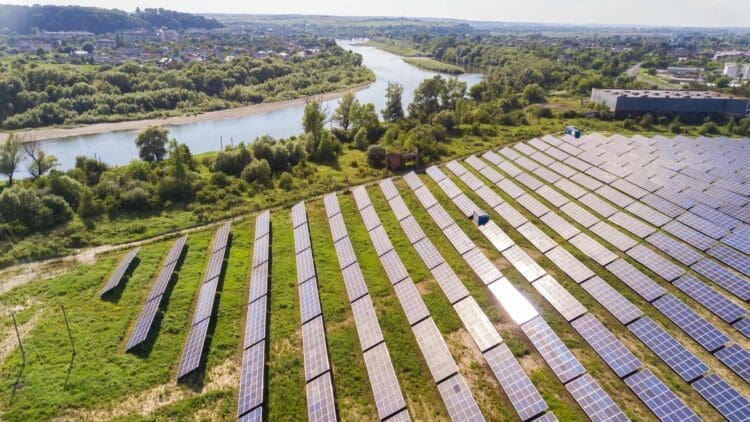Europe has seen a rapid expansion of the solar power sector over the past few years, which has the unintended effect of straining the continent’s power grids as they struggle to integrate the renewable energy source. Europe, along with the rest of the world, has relied on coal and gas as a major source of energy resources on the continent, with Central Europe being a key driver in coal usage. However, the waves of change have swept through the European continent, leading the charge is the most practical and easy-to-use form of renewable energy.
Europe’s energy sector has seen significant change over the past few years
As the renewable energy sector has grown far beyond what anyone could have expected, there is one form of energy generation that has become the darling of the energy sector: solar power.
The world has been consumed by the need to diversify the energy sector. Wind power has come a long way, but it lacks significant investments in infrastructure and a more favorable policy environment. Not to mention the time it takes to build wind turbines and towers.
Nuclear is an alternative, but it also has a negative connotation attached to it due to the Cold War era, placing the fear of God in everyone. The result is that solar power has become the best form of energy generation that does not harm the planet and can be scaled up to meet any potential increases in demand.
Advancements in solar power technology and generation capacity have catapulted the sector to the forefront of our collective consciousness
Following a wave of innovations in the solar power sector and the news that Europe is phasing out any and all forms of Russian energy, the continent has turned to solar power to compensate for the loss of the conventional energy sector’s generation potential. However, change does not happen overnight, and rarely comes with no consequences, regardless of whether the intentions are good or bad.
The rapid expansion of solar in Europe has been unprecedented and embraced by leaders
Central Europe, in particular, has seen its solar power generation skyrocket over the past few years. A record-breaking summer in Europe saw Hungary, which is one of the nations still relying on Russian gas imports, experiencing unprecedented growth in the solar power sector, with over 40% of the nation’s energy supply coming from solar power.
However, the rapid expansion of the solar power sector has had the inevitable effect of straining the European power grid overall as it struggles to accept the reality of life without the need for fossil fuels.
Plug-in solar devices have seen a meteoric rise in several European nations
Plug-in solar devices, known in some parts of the world as Balcony solar, have seen several European nations embracing them as the call for a more climate-friendly way of life has consumed the world. The rise of the solar power sector has also resulted in solar PPA prices declining due to a surplus of supply exceeding demand in Europe.
Solar industry experts have urged the European continent to embrace the new future
The future of the European energy sector is changing. As the world embraces the new and wonderful potential of the renewable energy sector, solar power serves as the cornerstone of the market. Industry-leading organizations have urged the adoption of the renewable energy sector, as the end of the conventional oil and gas sector is a lot closer than some may think. Due to the ever-changing energy market and the end of Russian energy imports, Europe’s energy sector is facing a new horizon, but it needs time to adapt its aging infrastructure.





